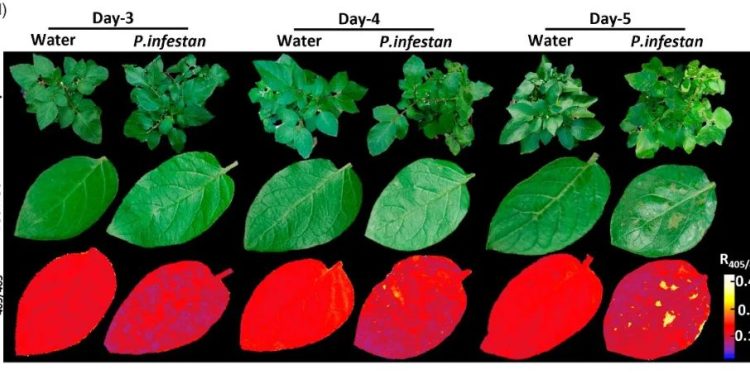late blight, potato plants, biosensor, INF1 protein, early detection, diagnostic tool, agriculture, sustainable agriculture, plant pathology
Late blight is a devastating potato plant disease that can cause significant yield losses and impact farmers’ income. Detecting the disease early is critical to prevent its spread and minimize losses. In this article, we discuss a new protein-based biosensor that enables early detection of late blight in potato plants and its potential benefits for farmers and agriculture.
According to a recent study published in the journal “Biosensors and Bioelectronics,” a team of researchers from the University of California has developed a protein-based biosensor that can detect the presence of late blight in potato plants. The biosensor works by detecting a specific protein, called INF1, that is secreted by the late blight pathogen. The biosensor can detect the protein at very low concentrations, enabling early detection of the disease before visible symptoms appear.
The biosensor has several potential benefits for farmers and agriculture. First, it can enable early detection of late blight, allowing farmers to take preventive measures to minimize the disease’s spread and impact on their crops. Second, it is a rapid and sensitive diagnostic tool that can provide accurate results in a matter of hours, compared to traditional methods that can take several days. Third, it is cost-effective and easy to use, making it accessible to farmers and agronomists in low-resource settings.
The development of a protein-based biosensor for early detection of late blight in potato plants is a significant breakthrough that can benefit farmers and agriculture. It provides a rapid, sensitive, and cost-effective diagnostic tool that can enable early detection and prevention of the disease. With further research and development, this technology could be adapted to detect other plant pathogens and contribute to sustainable and resilient agriculture.







